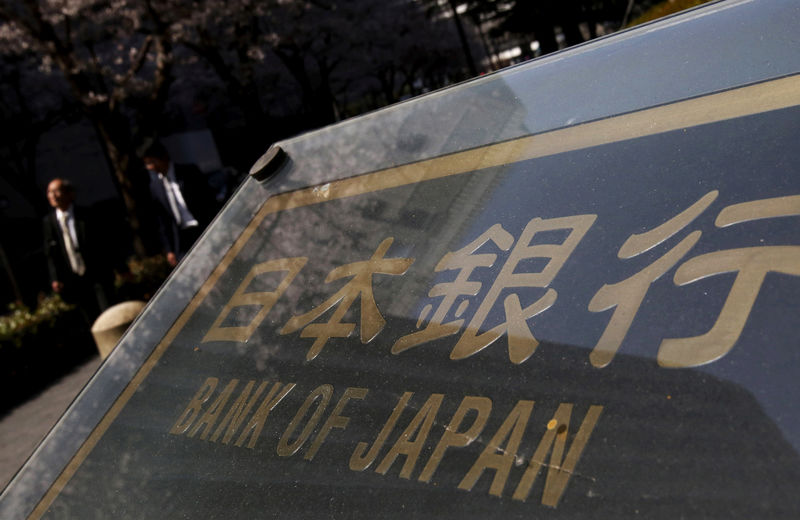By Taiga Uranaka
TOKYO (Reuters) - Japan's three biggest banks are likely to flag lackluster earnings for the current business year when they release forecasts this month, with loan income depressed by an economic stimulus policy that charges lenders to store money at the central bank.
Mitsubishi UFJ Financial Group Inc (MUFG), Mizuho Financial Group Inc and Sumitomo Mitsui Financial Group Inc (SMFG) have booked mixed earnings in recent years, with bumper stock gains offsetting weak core domestic lending.
Bank of Japan (BOJ) action has increasingly forced lenders to charge less for loans and yet has failed to stimulate demand, so its decision last week not to expand its negative benchmark interest rate policy offers respite for the year ahead.
For the year ending March 2017, net profit is likely to fall 8.8 percent at Mizuho and 3.6 percent at SMFG, according to the averages of analyst estimates compiled by Thomson Reuters. Profit at MUFG, the least dependent on domestic lending, is likely to be roughly the same as the previous year.
"It's going to be a tough year," said banking analyst Toyoki Sameshima at BNP Paribas (PA:BNPP) Securities. Fee-generating businesses such as selling mutual funds are also likely to be weak as volatile financial markets deter investors, he said.
NEGATIVE RATES
The BOJ's January decision to introduce negative rates - to encourage spending rather than storage - has added pressure on banks to compete for borrowers with even lower lending rates.
The Tokyo Interbank Offered Rate (TIBOR), a benchmark rate for corporate loans, has declined sharply in recent months. The three-month rate was 0.06273 percent before the BOJ held its policy last week, from 0.17091 before it adopted negative rates.
Loan volume, however, has not increased by the same degree. Japanese banks' total outstanding loans rose just 2 percent in March from the same period a year earlier, less than in January.
"The BOJ's negative interest rate policy has almost no impact on loan demand from our corporate clients," said a senior banker at one of the three lenders.
"Unless companies feel confident enough about their business outlook, they don't borrow money and invest in production expansion," said the banker, who was not authorized to speak publicly and so declined to be identified.
POSITIVE SPIN
Some analysts see positives in the flip side of the central bank's policy, which also involves buying Japanese government bonds (JGBs). Investors have been buying bonds in the hope of later selling to the central bank at higher prices.
Prices jumped after the adoption of negative rates, pushing up the value of commercial banks' substantial bond holdings.
The potential profit MUFG could book by selling its domestic bond holdings including JGBs was about 550 billion yen ($5.08 billion) as of the end of March, from 317 billion yen at the end of September, according to banking analyst Yoshinobu Yamada at Deutsche Securities.
The unrealized gain on such holdings at Mizuho and SMFG is about 100 billion yen each, Yamada said.
"The three mega banks' net profit would increase if they sell JGBs," he said.
Gains from JGB sales would bump up earnings only for as long as three to four years, so banks still need long-term solutions to strengthen domestic loan businesses, Yamada said.
"It will be a pressing issue for major banks to seek overseas acquisitions and for regional lenders to pursue consolidation."
